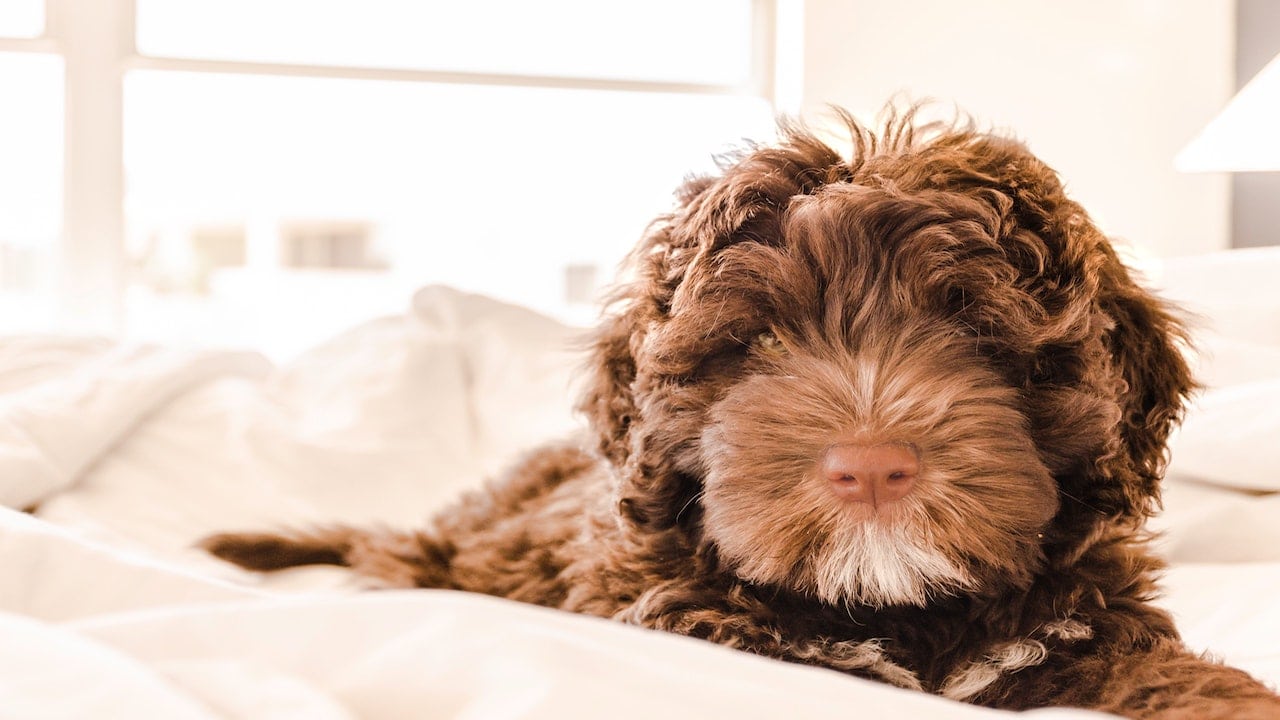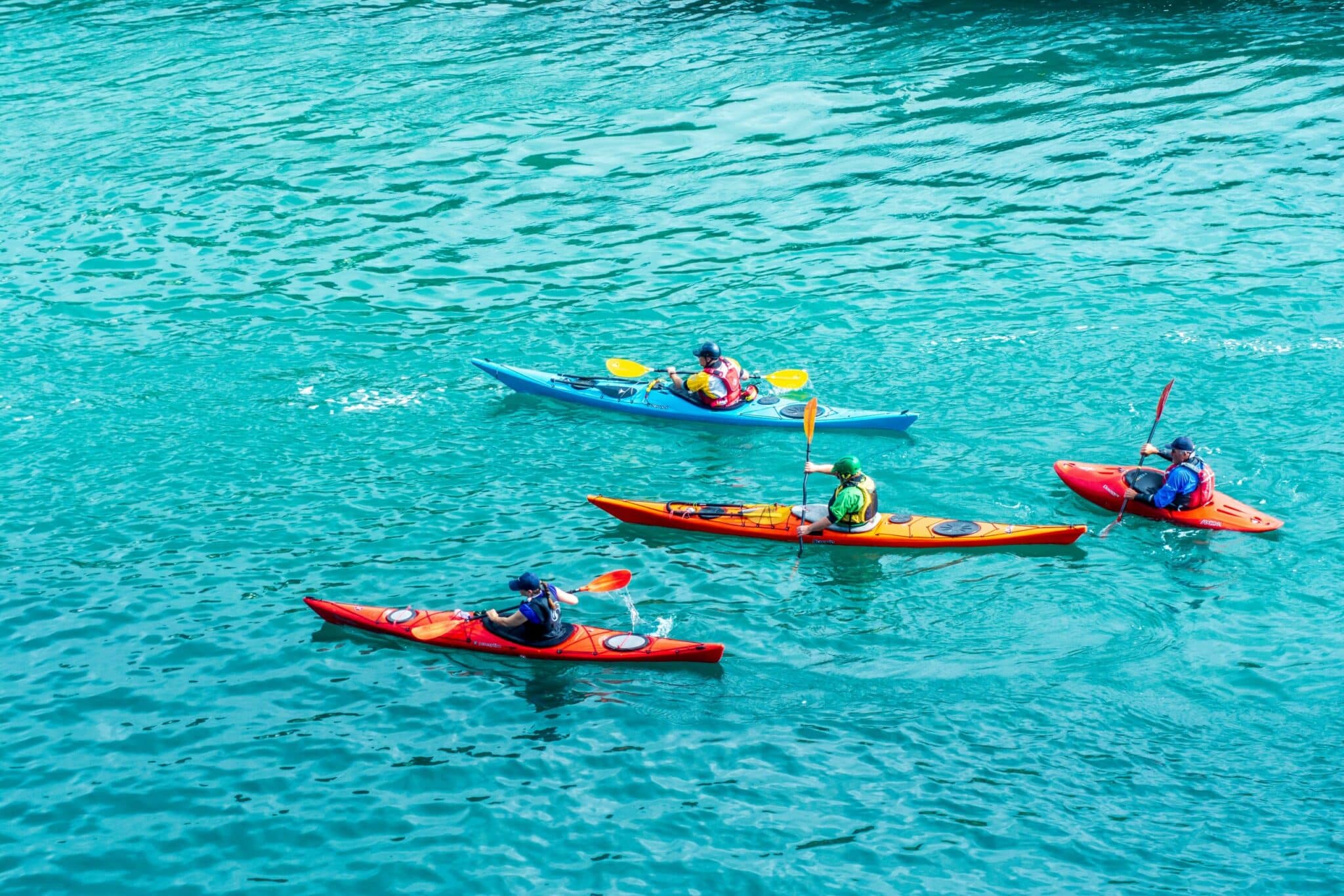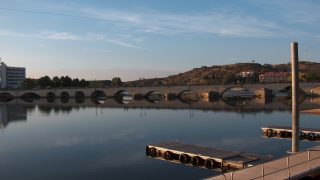Famous for their long, curly coats and excellent swimming abilities, the Portuguese water dog has been a much-loved breed for centuries. A long history traces the dog’s particularly close links with fishermen in Portugal, establishing their reputation as an intelligent, loyal and super active dog. They’re so friendly and charming that even the Obama family fell in love with them. The breed recently catapulted to worldwide recognition when two famous Portuguese water dogs – Bo and Sunny, were adopted as the official White House pet during his presidency. If you’re looking to get one of these adorable dogs or simply want to know more about the breed, read on to find out everything you need about the Portuguese water dog.
What is the Portuguese water dog?
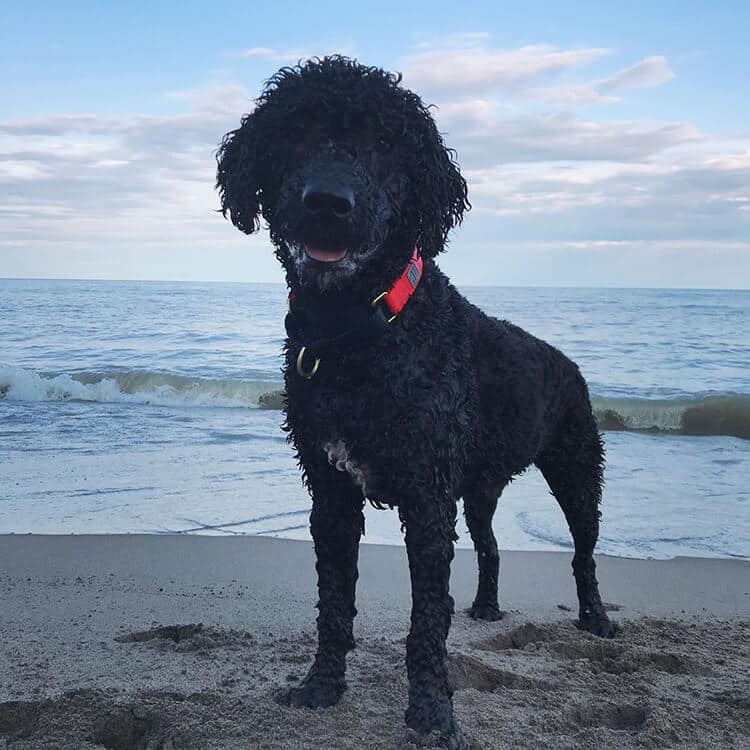
Firstly, you might be curious as to why these dogs are so strongly associated with water. In Portuguese, the breed is called ‘Cão de água’ which literally translates to ‘Dog of water.’ The dogs are originally from the Algarve, which is a strong fishing region in the south of Portugal. For centuries they were taught to assist with the local fishermen and as a result, would be found constantly swimming in the water.The Portuguese water dog, also known as a PWD or Portie is classed as a breed of working dog. This means they hold the ability to perform tasks that can also help humans. It wasn’t uncommon to see the dogs doing everything from retrieving broken nets or lost tackle, herding fish into the nets and even swimming as couriers between ships.Find out more about the best fish in Portugal here.
History of the Portuguese water dog
Early Origins
The earliest reference of the Portuguese water dog can be traced back to 1297, from a manuscript written by a Portuguese monk. It described a drowning sailor that was saved by a dog with a “black coat, the hair long and rough, cut to the first rib and with a tail tuft.” Though not confirmed, many believe this account refers to the breed. Many early accounts would also describe it as a ‘Lion Dog’ for its appearance and distinctly long hair.
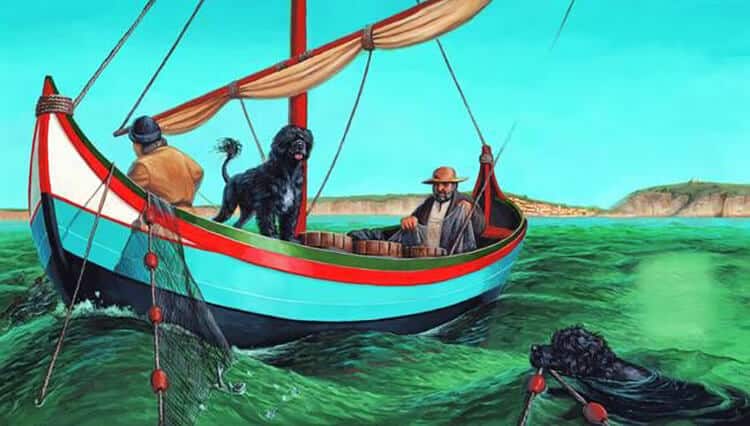
For centuries, the Portuguese water dog accompanied Portuguese fishermen on boats along the Algarve. They were revered for their companionship, loyalty and ability to work alongside the fishermen. Often, they also acted as guard dogs, as they would protect the sailors’ fishing trawlers as well. They were respected and loved amongst the crew on the boats, often earning their fair share of fish that was caught. Find out more about Portugal, subscribe to our newsletter.
Facing Near Extinction
In the early 20th century, with the rise of marine technology and reduced work for fishermen, the breed faced near extinction. A wealthy Portuguese shipping magnate Vasco Bensaude worked to save the species with a single dog named Leão. Leão, which translates to ‘lion’ in Portuguese would eventually be the founding sire of the modern breed. The first litter was born in 1937 and he was bred to so many different females that half of the pedigreed Portuguese water dogs today can trace their lineage back to him.
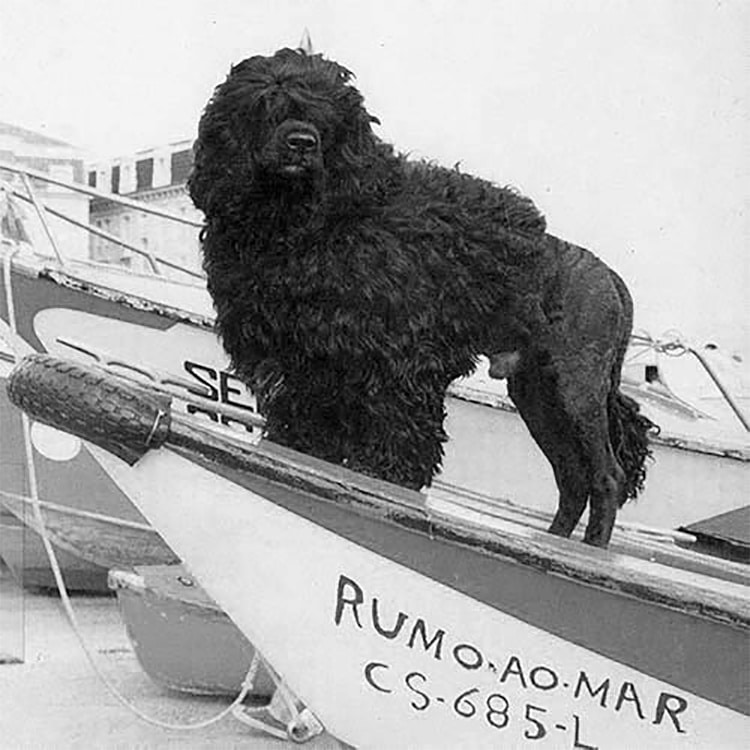
Preservation Of The Breed
In the 1960s, the Portuguese water dog was eventually brought to America where they formed the Portuguese water dog Club of America and set about saving the breed. Since then, the dog has also been the focus of a reproduction programme that would enable their preservation and conservation. This was pioneered by Carla Molinari and Silvino Macau of the Portuguese water dog Protection Association (APCAP).
Characteristics of the Portuguese water dog
Portuguese water dogs are robustly built dogs, with a solid muscular body and distinctly webbed toes which benefit them for swimming. Hence, the medium-size dog is well known as a super active breed which loves to exercise. In particular, they thrive with training and are perfectly suited for obedience and therapy work. They also love accompanying humans with various activities such as walking, running or swimming.Want to know how to bring a pet to Portugal? Read all about it here.
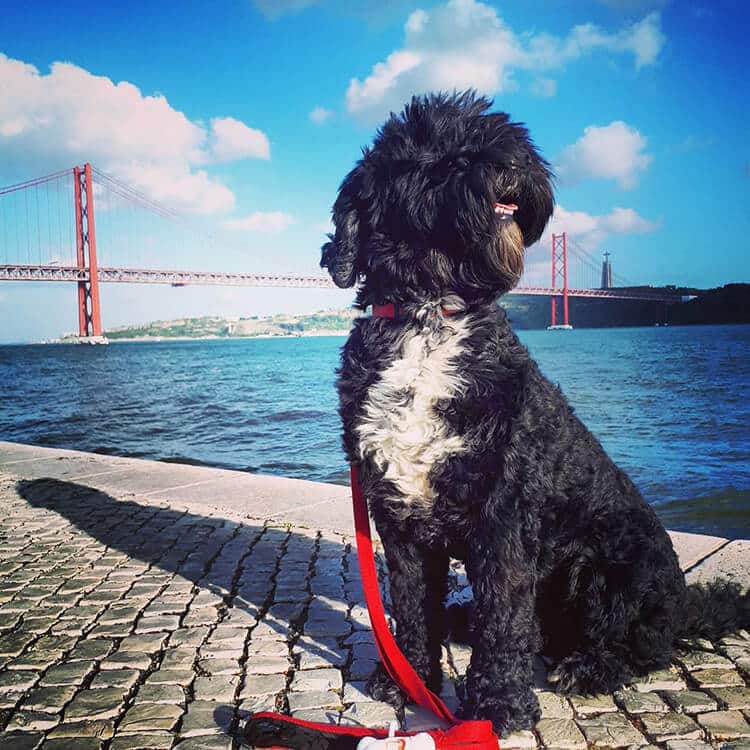
The breed can have a curly or wavy coat usually in black, brown, black and white or brown and white. While they hold a reputation as being ‘hypoallergenic’ dogs, technically there is no such thing as a hypoallergenic dog as all dogs shed and produce dander. However, the dog has a single coat, which means they don’t have an undercoat. As they don’t shed much hair, they’re well-tolerated amongst many people who suffer from dog allergies. Male dogs can usually grow up to 51-58cm (20-22 inches) in size and weigh between 18-27kg (39-59 lbs). Meanwhile, females usually grow to about 43-53cm (17-20 inches) and can weigh between 16-23kg (35-50 lbs). On average, their life spans can last between 10 – 15 years.
Portuguese water dog health concerns
Generally, the Portuguese water dog is quite a healthy breed but they’re still prone to some health conditions that include:
- Hip Dysplasia – A hereditary condition where the thigh bone doesn’t fit into the hip joint.
- Storage Disease – A recessive genetic disorder where there is a lack of an enzyme and allows the building up of toxic substances in the nerve cells.
- Progressive Retinal Atrophy – A degenerative eye disorder that eventually causes blindness.
- Juvenile Dilated Cardiomyopathy – An inherited disease that causes sudden death in puppies between 5 weeks and 7 months.
It’s important to note that if you’re thinking of buying a puppy, make sure you find a good breeder that can show you health clearances for both of the puppy’s parents. Breeders are quite careful in studying the pedigrees and will select dogs to minimise these diseases.
Water dogs personality
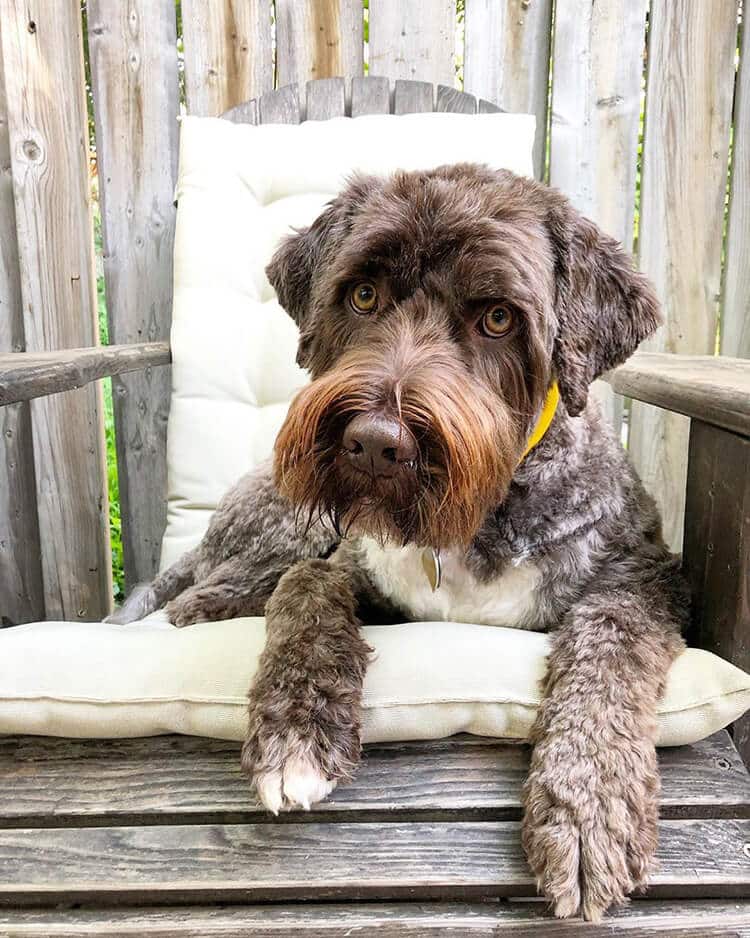
These magnificent dogs are fun-loving, energetic and super loyal to their owners. They are highly suitable for families with children as they love to play. You’ll find that they’re amusing to have around and also super tender and affectionate dogs. One of their renowned traits is that they’re also very intelligent and love learning. If you adopt a puppy you will find that you’ll be able to train them quite easily. Be careful though as you might even find them try trying to out-smart you! They are very cheeky and amusing dogs to play with. They’ll constantly try to trick you and love finding ways to draw your attention.
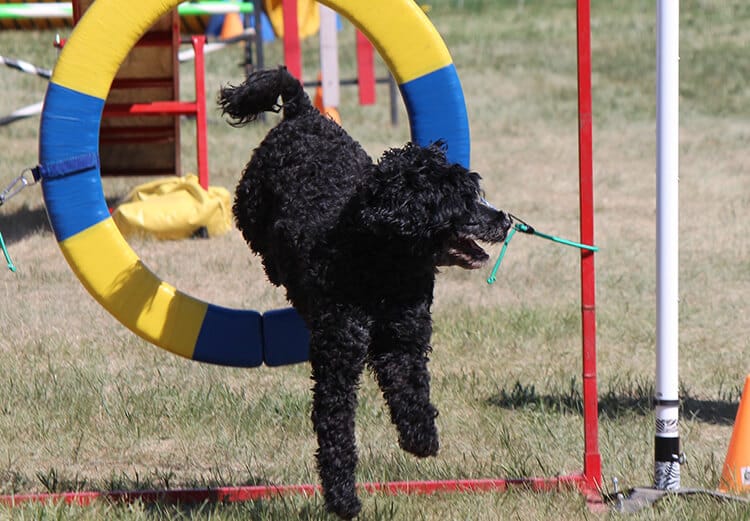
It’s important to make sure that you keep their training challenging and fun as they do get bored quite easily. The reward is a very adaptable dog who will be a loyal and treasured companion for life.
Are Portuguese water dogs social?
As with most dogs, Portuguese water dogs need early socialisation. This means they should be exposed to a range of people, sounds, sights and experiences when they’re young. They’re super sociable dogs and usually get along well with other dogs and cats. If they’re raised with them, they’ll usually respond quite favourably.
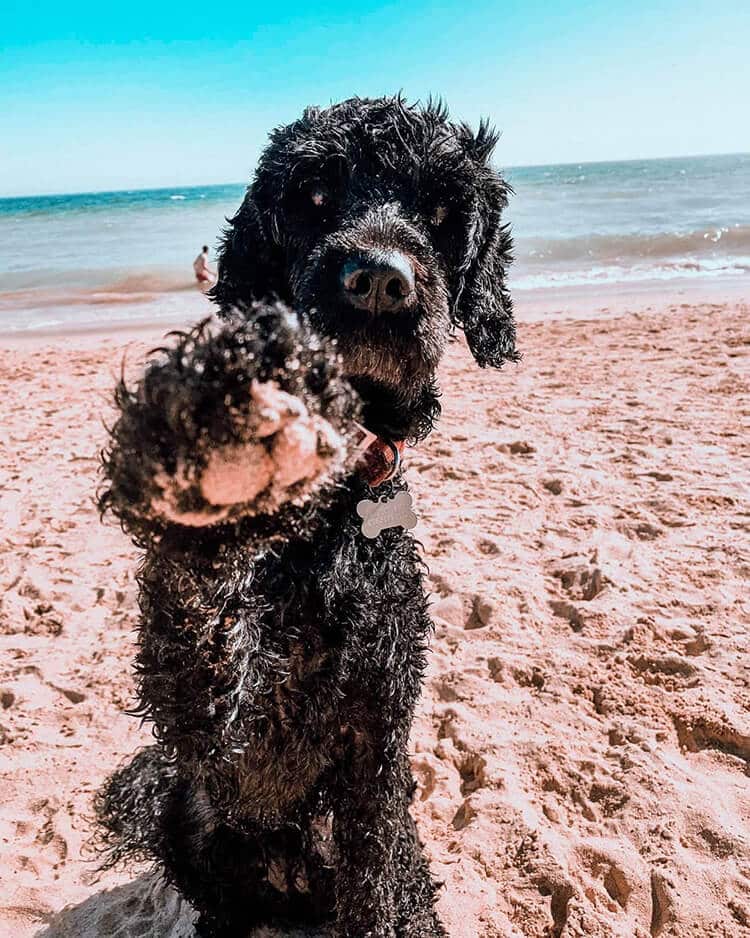
You should make sure they are socially trained if you have small children in your household. Their energetic personality can sometimes be a bit too overwhelming for kids. Just like any other dogs, make sure you supervise their interaction with children.You’ll find their temperaments can range from being laid back and chilled while others can be strong-willed. Most Portuguese water dogs usually fall somewhere in the middle. Usually, they’re pretty quiet dogs and don’t bark frequently. However, they do have a loud, distinct bark as they have a multi-octave voice. They will only bark when they notice a perceived threat or if they’re bored.
How do I take care of this breed?
Portuguese water dogs should have at least 30 minutes of exercise daily. With enough exercise, you’ll find that they will be able to use up their energy and remain quiet when indoors. Without their exercise, you might expect them to spend that energy on chewing items and furniture around the house!

It’s recommended to serve them at least 2.5 – 3.5 cups of high-quality dog food daily. Divide this portion between two meals rather than one single serving though. It’s important to buy high-quality dog food. This makes a huge difference as it’s important to give them the nutrients they need, especially for such an active breed.
Grooming the Portuguese water dog
Brush or comb the Portuguese water dog at least 2-3 times a week to make sure you untangle their coats. You can clip or trim the coat monthly to also keep it neat and tidy. When cutting their hair, it’s popular to give them a lion clip. This involves keeping the rear, muzzle and mid-body short with a tuft at the end of the tail. You can also give them a retriever clip. This is an all-over trim of the coat to about an inch in length.
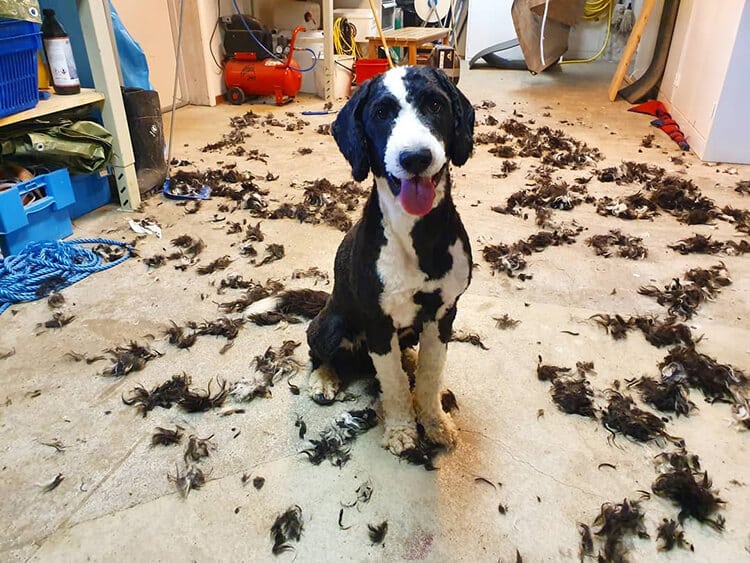
Make sure you trim their nails once or twice a month to prevent scratching when your energetic dog wants to jump and greet you. You should also brush their teeth at least 2-3 times a week to keep their breath fresh and prevent tartar buildup. 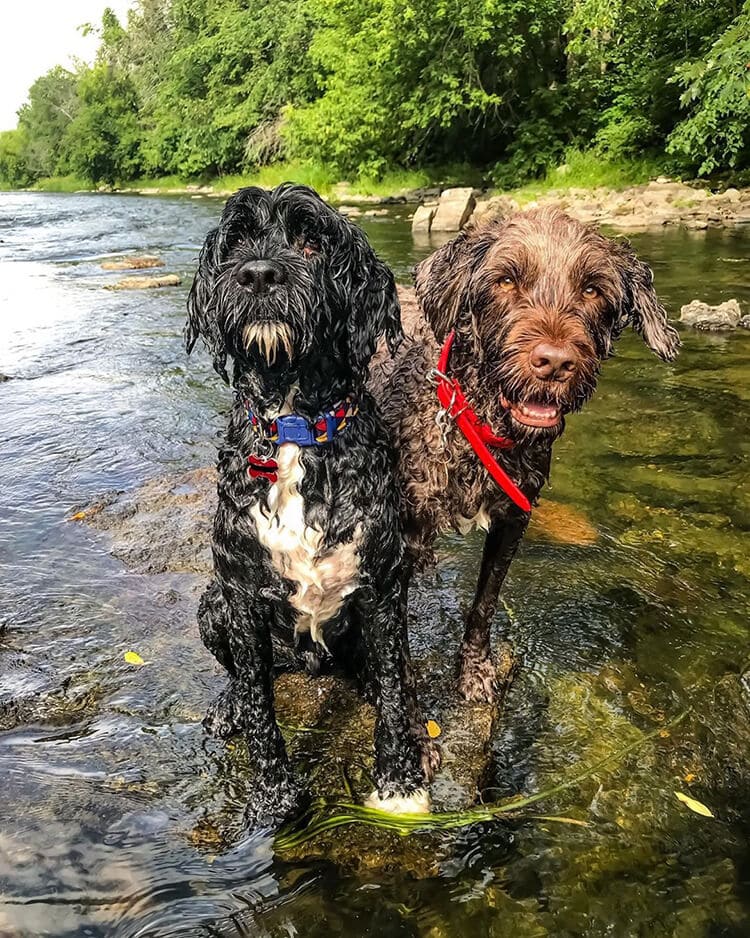 Most importantly, as the breed loves to spend time in the water, it’s important to give them a thorough fresh-water rinse. This way, you can remove all chemicals, salt and substances that may cause coat or skin problems. Make sure you wipe out and dry their ears to prevent further infections.
Most importantly, as the breed loves to spend time in the water, it’s important to give them a thorough fresh-water rinse. This way, you can remove all chemicals, salt and substances that may cause coat or skin problems. Make sure you wipe out and dry their ears to prevent further infections.
Can I have one in a small house or apartment?
Definitely. Portuguese water dogs love people and should definitely still live inside a house or apartment. While ideally, they should have a fenced yard to run around and play safely, they can also adapt easily to apartment life.
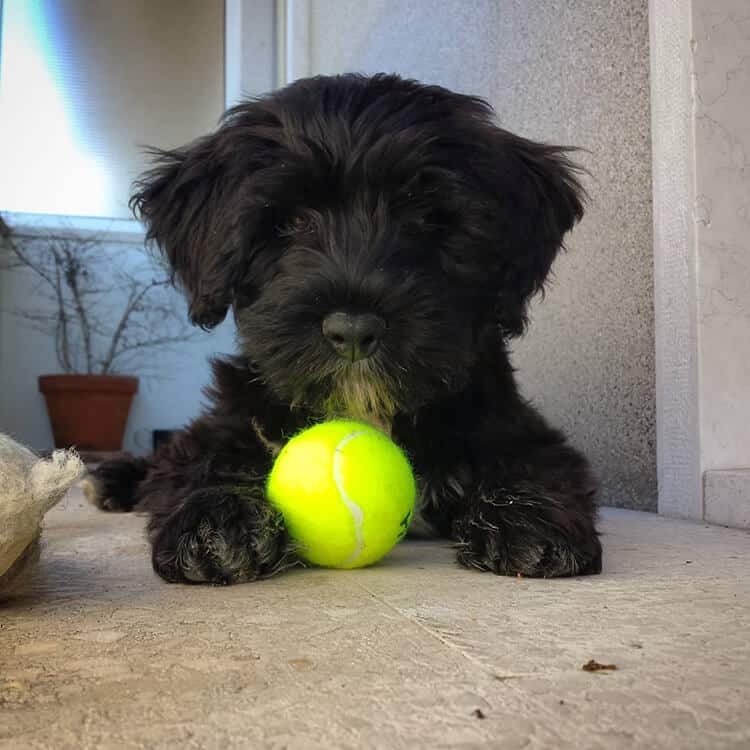
If you live in a small house or apartment, make sure you take them outside to exercise daily. You have to commit to keeping these dogs active otherwise you might return to find your house destroyed. They will become easily bored and use up that energy inside.They often don’t tolerate irregular daily routines or noisy households. So, if you find your lifestyle is unpredictable you might not be a good match with this breed. Discover if Portugal is a pet-friendly country or if you can take your best friend on public transports here.
How do I get a Portuguese water dog?
Convinced after this reading article that you want to get a Portuguese water dog? I don’t blame you! If you’re looking to own a Portuguese water dog, make sure you adopt one from a litter that abides by the regulations of the Portuguese Dog Club. We strongly recommend never buying these dogs from a puppy mill, pet store or a breeder that refuses to provide health clearances or guarantees on their dogs. Make sure you find a reputable breeder who tests their breeding dogs to clear them of diseases. You can find a list of some of the PWD breeders in Portugal here:
As these dogs do require substantial medical tests, you might expect to pay anywhere between €1,500 to €6,000 to adopt one. However, for a lovable and energetic dog, it’s a small price to pay for a loyal companion for life.

